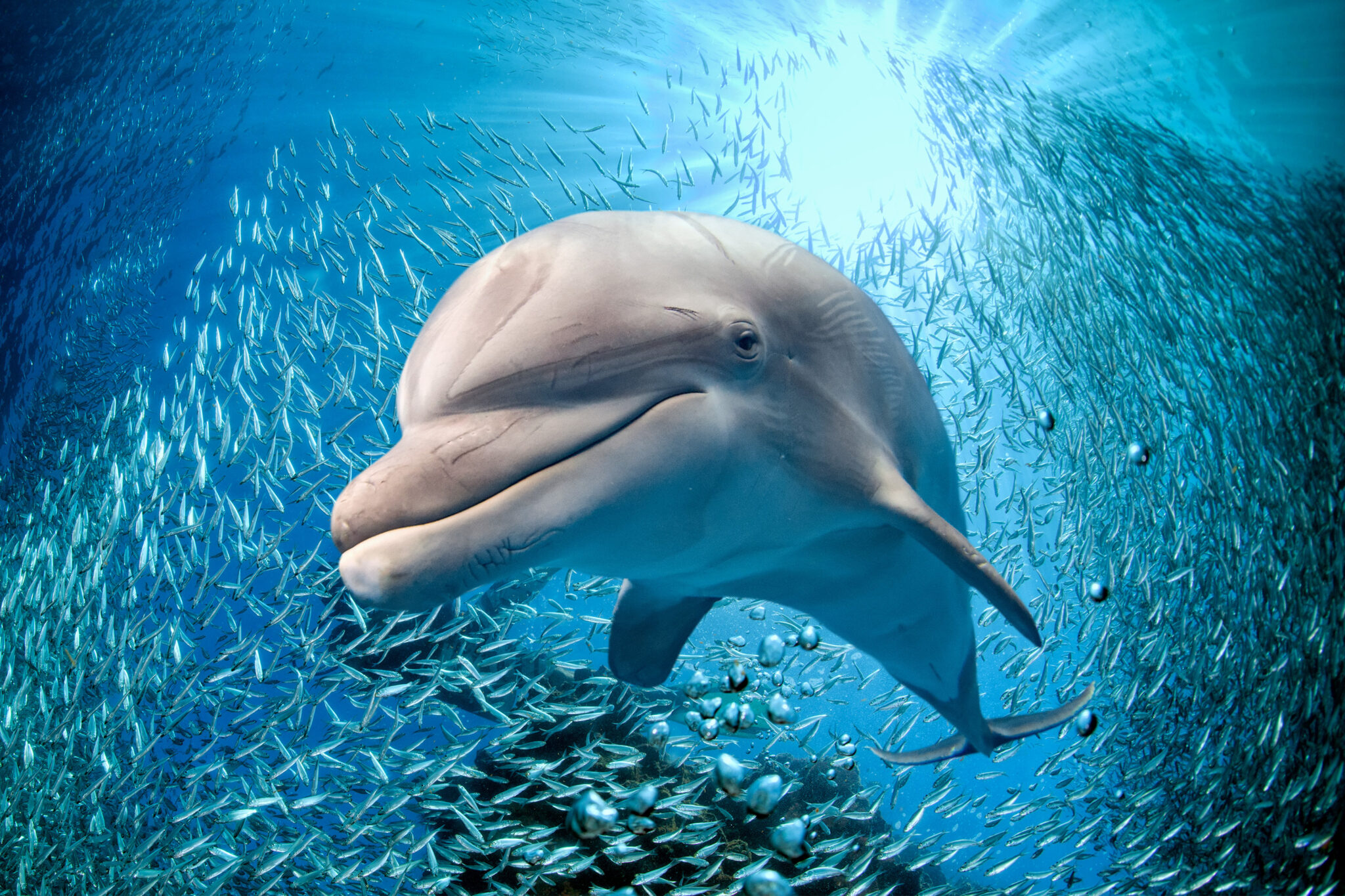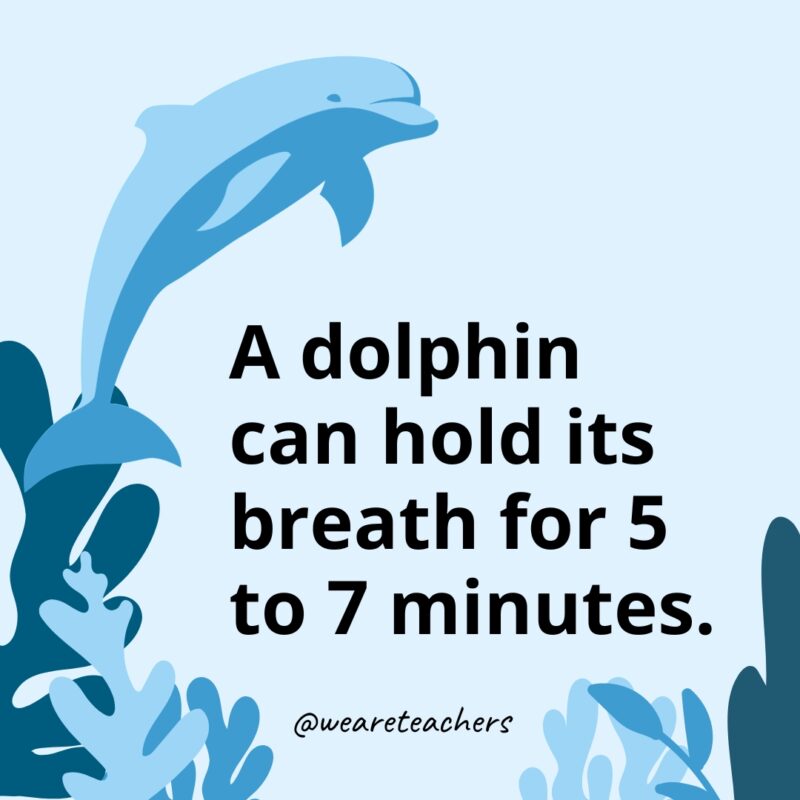Discover Fascinating Dolphin Facts That Will Astonish Your Close Friends
Wiki Article
Study the Ocean: Exciting Dolphin Realities for Sea Lovers
The globe of dolphins provides a fascinating intersection of knowledge, social behavior, and environmental importance. From their complicated communication approaches to their outstanding problem-solving abilities, dolphins test our understanding of animal knowledge.Dolphin Variety Diversity
Variety is a characteristic of the dolphin family, including a large array of varieties that exhibit unique physical qualities, habits, and habitats. The household Delphinidae, generally recognized as oceanic dolphins, makes up approximately 37 types, each adjusted to details eco-friendly particular niches. For instance, the bottlenose dolphin (Tursiops truncatus) is renowned for its knowledge and convenience, growing in both seaside and open sea environments.In comparison, the orca (Orcinus whale), commonly described as the killer whale, is the largest member of the dolphin household and is identified by its striking black-and-white pigmentation. Orcas demonstrate complex social frameworks and searching techniques, showcasing the behavioral variety within the family. Various other types, such as the spinner dolphin (Stenella longirostris), are noted for their acrobatic screens and choice for warmer waters, highlighting the versatility of dolphins to numerous aquatic environments.
Additionally, river dolphins, consisting of the pink river dolphin (Inia geoffrensis), live in freshwater environments, additionally showing the comprehensive habitats that dolphins occupy. Dolphin Facts. This amazing variety not just enhances marine ecological communities but likewise stresses the relevance of conservation efforts to secure these remarkable animals and their environments
Social Behavior and Interaction
The intricate social actions and interaction approaches of dolphins are essential components of their existence, promoting group cohesion and enhancing survival. These highly intelligent marine animals display complex social frameworks, often creating skins that can range from a couple of individuals to over a hundred. Within these groups, dolphins participate in actions such as cooperative searching, social play, and common security, which promote solid bonds among members.Dolphins utilize an innovative selection of articulations, consisting of clicks, whistles, and body language, to communicate info and reveal feelings. Their trademark whistles function as one-of-a-kind identifiers, similar to names, making it possible for people to call out to one another. This singing interaction is complemented by non-verbal signals, such as leaping, slapping the water, and integrated swimming, which even more boosts their interactions.

Special Feeding Habits
Unique feeding habits identify dolphins, showcasing their flexibility and intelligence in various aquatic atmospheres. These aquatic animals are recognized for their varied diet plans, which mainly consist of fish, squid, and shellfishes. Their hunting methods can vary considerably, frequently tailored to the particular prey and environmental problems.One notable approach is cooperative hunting, where dolphins operate in groups to herd colleges of fish right into tight developments, making it simpler for people to catch their dish. This social habits not only improves their feeding performance but likewise strengthens social bonds within the vessel. Furthermore, dolphins have been observed utilizing a strategy called "fish-whacking," where they use their tails to stun or confuse fish, facilitating easier capture.
Another remarkable feeding behavior is echolocation, which permits dolphins to spot target also in murky waters. By giving off sound waves and interpreting the returning echoes, they can determine the dimension, form, and location of their targets. This amazing capability underscores their flexibility in different habitats, from superficial seaside locations to much deeper oceanic waters. On the whole, the one-of-a-kind feeding habits of dolphins highlight their duty as skilled killers within the aquatic community, showing both knowledge and resourcefulness.
Intelligence and Trouble Solving
Their knowledge is noticeable in their problem-solving skills, social interactions, and capacity for knowing. Research study has actually shown that dolphins can utilize devices, such as using marine sponges to safeguard their rostrums while foraging on the seafloor.In addition, dolphins display sophisticated interaction skills, employing a complex system of clicks, whistles, and body language. Dolphin Facts. This interaction is important for collaborating group activities, such as hunting and socializing, illustrating their capability to function these details jointly in the direction of a common objective. Their capacity to understand abstract ideas, consisting of self-recognition in mirrors, even more highlights their cognitive sophistication
In regulated studies, dolphins have actually shown a capacity to address puzzles and execute jobs that require both memory and essential thinking. These interactions show not just knowledge but also a readiness to engage with their setting in unique ways. In general, the cognitive expertise of dolphins puts them among one of the most intelligent species on the world, fostering a much deeper recognition for their duty in aquatic communities.
Preservation and Environmental Impact
Conservation efforts intended at securing marine communities are essential for protecting dolphin populaces and their habitats. Dolphins are extremely sensitive to ecological changes, and their survival is elaborately linked to the health of oceanic ecosystems. Overfishing, air pollution, and environment change present considerable dangers to both dolphins and their settings.Overfishing interferes with the food web, bring about a decline in prey species necessary for dolphin survival. Furthermore, toxins such as chemicals and plastics build up in aquatic atmospheres, jeopardizing dolphins via ingestion and bioaccumulation. Increased water temperature levels and sea acidification, repercussions of environment change, better threaten the fragile balance of aquatic environments, affecting dolphin breeding and migratory patterns.
Conservation initiatives, including the establishment of aquatic safeguarded areas (MPAs), play an essential role in protecting these smart creatures. MPAs help reduce human influence, allowing ecological communities to prosper and recover. Public recognition campaigns and community involvement are additionally necessary, cultivating a culture of stewardship in the direction of aquatic life. By focusing on preservation efforts, we can ensure that future generations take pleasure in the appeal and vigor of dolphins and the oceans they populate. Securing marine ecological communities is not just about conserving dolphins; it is regarding maintaining the detailed internet of life that maintains all of us.
Verdict
Dolphins exemplify the complexity and richness hop over to these guys of marine life with their varied types, elaborate social frameworks, and progressed cognitive capabilities. Their distinct feeding habits and communication techniques better show their adaptability and knowledge. As important elements of aquatic ecological communities, dolphins highlight the requirement of continuous preservation efforts to guard their habitats. Protecting these impressive creatures is necessary not just for their survival however also for maintaining the health and balance of ocean environments internationally.Various other varieties, such as the spinner dolphin (Stenella longirostris), are noted for their acrobatic display screens and preference for warmer waters, highlighting the flexibility of dolphins to numerous marine communities.
Overall, the distinct feeding routines of dolphins highlight their duty as skilled killers within the marine ecosystem, showing both knowledge and resourcefulness.
In general, the cognitive prowess of dolphins places them amongst the most smart varieties on the planet, promoting a deeper appreciation for their role in marine communities.

Report this wiki page